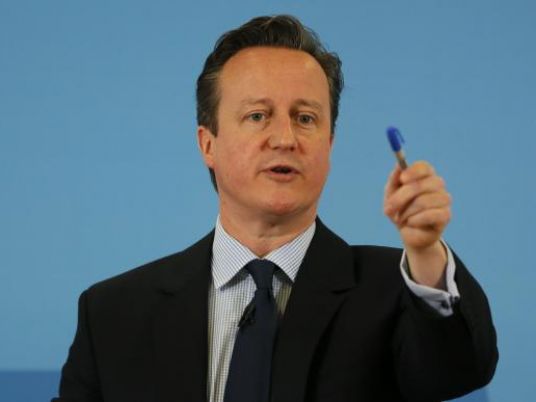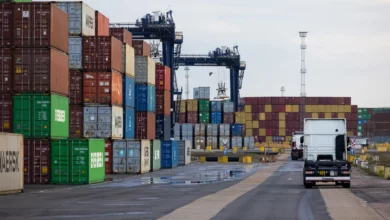
The number of people moving to Britain surged last year, an embarrassment for Prime Minister David Cameron, whose Conservatives had pledged to cut net annual migration to the tens of thousands, close to a national election.
Official data published on Thursday showed a net 298,000 people moved to Britain in the year to September 2014, a 40 percent rise from the previous 12 months and more than when the Conservative-led coalition government took power in 2010.
With polls showing the Conservatives neck-and-neck with the opposition Labour party ahead of the May 7 vote and immigration one of voters' top concerns, the rise is awkward for Cameron. His party is also under pressure from the UK Independence Party (UKIP), which favours strong curbs on immigration.
Both Labour and UKIP said Cameron's immigration pledge was now "in tatters."
"This government's policy is fatally holed beneath the water line and is sinking fast," said UKIP migration spokesman Steven Woolfe, describing the numbers as "absolutely staggering."
A ComRes poll for ITV on Thursday showed UKIP was by far the most trusted party to control immigration, and 40 percent of Britons said immigration had a negative impact on the economy.
A spokeswoman for Cameron said the figures were "disappointing" but that the government had taken several steps to tackle the levels of migration and the prime minister did not regret making the promise.
"He thinks it is in the interests of our country, that we will have a better, stronger country if we had lower net migration," she said.
Cameron, who has pledged to re-negotiate Britain's ties with the EU ahead of a 2017 membership referendum if re-elected, has set out plans to restrict EU migrants' access to welfare benefit payments in a bid to make it less attractive to come to Britain.
Releasing its final migration data before the election, Britain's Office for National Statistics (ONS) said the number of EU citizens coming to Britain increased by 43,000 to 251,000 during the period.
The number of immigrants from Romania and Bulgaria, whose restrictions on working in Britain were removed on Jan. 1 last year, was 37,000, up from 24,000 over the same period in 2013.
With British economic growth outpacing most of the EU it has become an increasingly appealing destination for those seeking work. The ONS said that between October and December 2014 employment of EU nationals in Britain was 269,000 higher than a year earlier.




